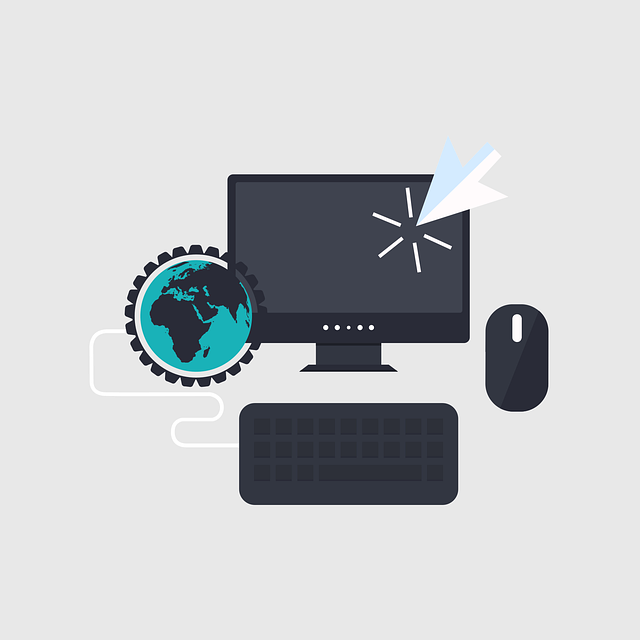In today's digital era, AI tools are transforming automotive repairs by enhancing efficiency, reducing errors, and streamlining processes. Implementing AI workshops involves selecting tailored software, training staff, and optimizing workflows to leverage these capabilities. Success is measured through KPIs like reduced repair times and improved diagnostic accuracy. Case studies and exploring emerging technologies ensure shops stay informed about industry innovations aimed at revolutionizing automotive repair productivity.
“Unleash the potential of artificial intelligence (AI) in your automotive shop and transform the way you service vehicles. This comprehensive guide explores how AI tools are revolutionizing the industry, offering unprecedented efficiency gains and accuracy.
From streamlining diagnostics to enhancing overall workshop productivity, AI is a game-changer. We’ll walk you through a strategic approach to implementing AI workshops, covering software choices, staff training, and process adjustments for seamless integration. Get ready to discover how AI can drive your automotive repair business towards peak performance.”
- Understanding AI's Potential in Automotive Repair: How AI tools can streamline processes, reduce errors, and increase efficiency in workshops
- Implementing AI Workshops: Step-by-step guide to integrating AI technologies, including software selection, staff training, and process adaptation
- Measuring Success and Future Prospects: Tracking productivity gains, case studies of successful implementations, and exploring emerging AI advancements for the automotive industry
Understanding AI's Potential in Automotive Repair: How AI tools can streamline processes, reduce errors, and increase efficiency in workshops

In today’s digital era, embracing Artificial Intelligence (AI) tools offers automotive shops a game-changer in enhancing their operational efficiency. AI has the potential to revolutionize the way workshops conduct repairs by streamlining processes and reducing human errors. By implementing AI technologies, automotive repair processes can be automated, from initial diagnostics to part replacement recommendations. These intelligent systems analyze vast amounts of data, including vehicle sensor readings, historical repair records, and manufacturer specifications, to provide accurate and timely insights.
Furthermore, AI tools can significantly reduce the time spent on laborious tasks, allowing technicians to focus on more complex repairs. With AI-powered diagnostics, shops can identify issues with greater precision, leading to faster turnaround times and improved customer satisfaction. The integration of AI in automotive repair productivity promises a future where workshops operate with enhanced agility and accuracy, setting new standards for quality and efficiency across the industry.
Implementing AI Workshops: Step-by-step guide to integrating AI technologies, including software selection, staff training, and process adaptation

Implementing AI Workshops: A step-by-step guide to integrating AI technologies into automotive shops is essential for enhancing repair productivity and efficiency. The first step is software selection, where businesses should choose AI tools designed specifically for automotive applications, focusing on tasks like diagnostic support, predictive maintenance, and parts inventory management. These tools can analyze vast datasets from vehicle sensors to predict potential issues, reducing downtime.
Once the right software is chosen, staff training becomes paramount. Workshops should be organized to educate employees on AI technologies, their benefits, and how to use them effectively. This could involve demonstrations, hands-on sessions, and continuous learning opportunities. Process adaptation follows, where existing workflows are reviewed and optimized for seamless integration with AI tools. This might include updating procedures for data collection, analysis, and decision-making processes, ensuring that the shop’s operations align with the capabilities of AI technologies.
Measuring Success and Future Prospects: Tracking productivity gains, case studies of successful implementations, and exploring emerging AI advancements for the automotive industry

Measuring success is paramount in evaluating the impact of AI workshops on automotive shops. Key performance indicators (KPIs) such as reduced repair times, increased accuracy in diagnostics, and improved efficiency in parts inventory management provide tangible metrics for gauging progress. By tracking these gains, shops can demonstrate the tangible benefits of adopting AI tools for improving automotive repair productivity.
Looking ahead, case studies of successful implementations offer valuable insights into real-world applications of AI in the automotive industry. These stories showcase how forward-thinking shops have leveraged AI to streamline operations, enhance customer satisfaction, and stay competitive. Furthermore, exploring emerging AI advancements ensures that automotive professionals remain abreast of the latest innovations, such as predictive maintenance algorithms and advanced robotics, which promise to transform the industry even further.
AI workshops offer a transformative path for automotive shops to enhance productivity and efficiency. By understanding AI’s potential and implementing well-planned strategies, as outlined in this article, businesses can streamline operations, reduce errors, and stay ahead of the curve. The successful integration of AI tools in automotive repair is not just a possibility but an emerging necessity, promising significant gains in performance and competitiveness for those who embrace it.
